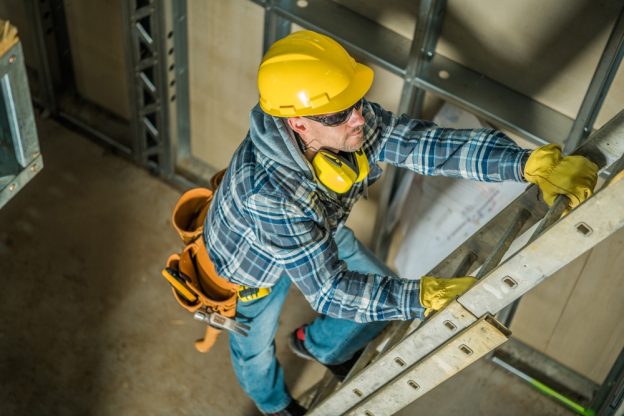When preparing for your California contractor license exam, one detail that often slips through the cracks is advertising compliance. Many future contractors spend hours mastering trade knowledge and business law, yet forget that something as simple as how you use your license number in ads can make or break your compliance with the Contractors State License Board (CSLB). Whether you’re designing a business card, posting on Facebook, or taking out a print ad in a local newspaper, your license number must be displayed properly. Failing to do so isn’t just a minor oversight. It can result in fines, disciplinary action, and damage to your professional reputation.
Understanding the rules now will save headaches later, and it will help you start your business on the right foundation.
Why Your License Number Matters in Ads
Your license number isn’t just a random ID; it’s proof that you’ve met the state’s standards to work legally as a contractor. The CSLB requires nearly all advertising to display this number so that consumers can verify your credentials. Think of it as your badge of credibility. If a homeowner is comparing contractors and sees one with a license number upfront and another trying to avoid it, who will they trust more?
From the CSLB’s perspective, requiring a license number helps protect the public from unlicensed operators. For contractors, it’s not only a legal obligation but also a trust-building opportunity. Advertising without your number can make clients suspicious, even if you’re properly licensed.
The Basics of License Number Placement
Advertising compliance starts simple: if your business name is promoted, your license number must appear as well. The CSLB spells this out clearly: any print ad, online post, vehicle ad, or promotional item must display your number. A few practical examples help illustrate what this means in real life:
- Business cards and letterheads: Your license number should appear directly under your company name. Contractors sometimes tuck it into small print, but clarity and visibility are key.
- Website and social media: If you list your services online, whether on a personal website, Instagram, or Yelp profile, you must post your license number somewhere prominent. Consumers need to see it without having to dig around.
- Vehicle signage: Any lettering on your company truck or van must include your license number in print that is at least as large as your business name or phone number.
- Print and digital ads: Whether you’re running an ad in a community newspaper or sponsoring an online post, always include your license number in text large enough to read.
This rule applies to every type of advertising except small specialty items like pens, pencils, or clothing, where space is limited.
Common Mistakes and How to Avoid Them
New contractors often make the same mistakes, usually because they underestimate how carefully the CSLB enforces advertising laws. For example, you may be tempted to showcase only your company’s name and phone number when wrapping your work truck. Without a license number, though, you’re noncompliant and could face fines of $100 to $1,000. Another common error is leaving the number off online ads, especially on platforms like Craigslist or sponsored Facebook posts. The CSLB actively checks these spaces, and unlicensed advertising can raise red flags.
The simplest way to avoid mistakes is to establish a standard format for your advertising. Decide where the license number will appear on all company materials, and stay consistent. Many contractors place it immediately under the company name with the abbreviation “Lic.” This not only demonstrates professionalism but also eliminates the risk of “forgetting” the number in situations where compliance isn’t top of mind.
Best Practices for Professional Advertising
Think beyond compliance. Your license number should not feel like a requirement slapped onto an ad at the last minute. Instead, integrate it into your branding strategy. For instance, positioning your license number clearly beneath your logo conveys credibility and authority.
It also helps to train employees or marketing partners about the law. If someone else is handling your advertising (perhaps a sign company, web developer, or marketing agency) they must know your license number and where to place it. A small oversight on their end could land you in hot water with regulators.
Finally, remember that your license number is designed to protect you just as much as it protects the consumer. By displaying it openly, you’re setting yourself apart from unlicensed operators and showing prospective clients that you run a legitimate, trustworthy operation.
Build Trust, Stay Compliant
Advertising is often your first introduction to a potential customer, which makes it a powerful tool for both business growth and compliance. Displaying your license number correctly in print, online, and on vehicles isn’t just about following the CSLB’s rules, it’s about establishing yourself as a professional contractor who takes integrity seriously.
As you prepare for your license exam, remember that the test isn’t just about building practices or legal definitions; it’s about learning the habits that successful contractors carry throughout their careers. Properly using your license number in advertising is one of those habits. Nail it early, and you’ll protect your business, earn client trust, and stay one step ahead of costly compliance mistakes.









